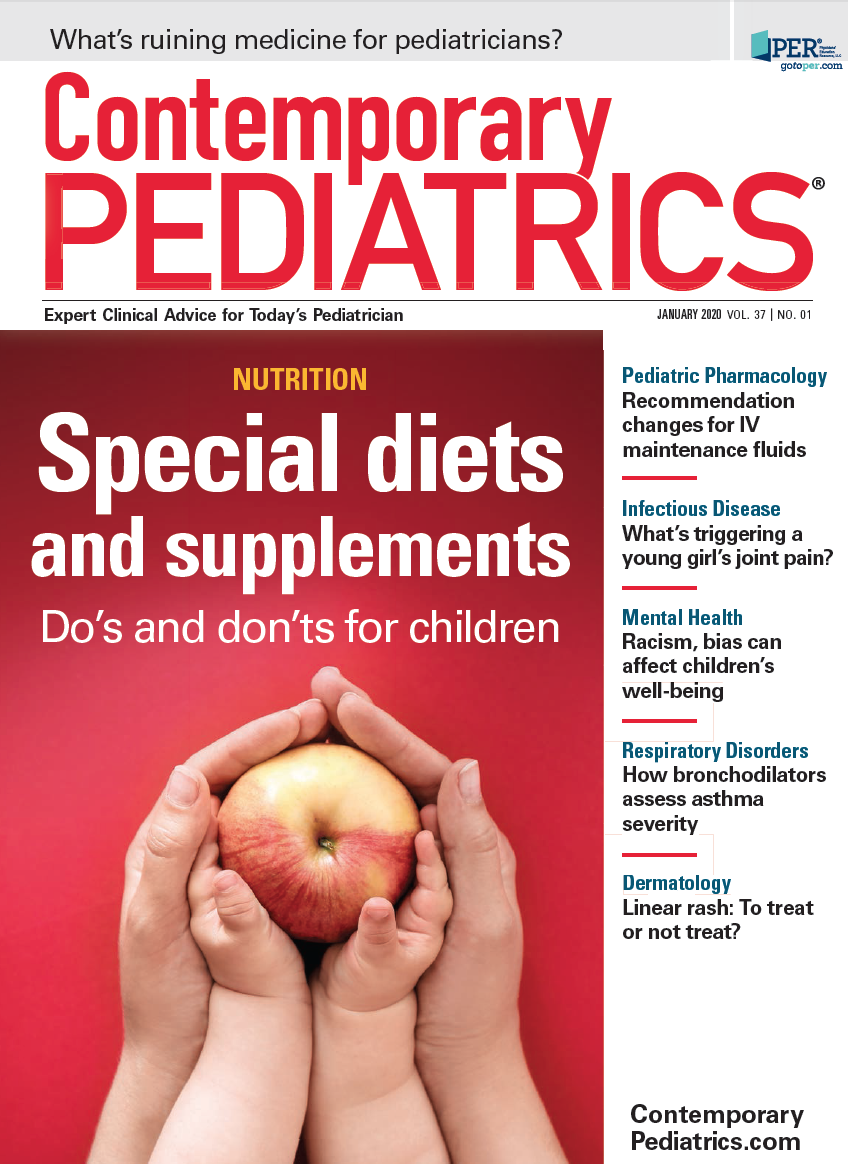What’s ruining medicine for pediatricians?
Faced with ongoing and emerging challenges that compete for their time, pediatricians are struggling to provide quality care and counseling.
Current satisfaction or dissatisfaction with job
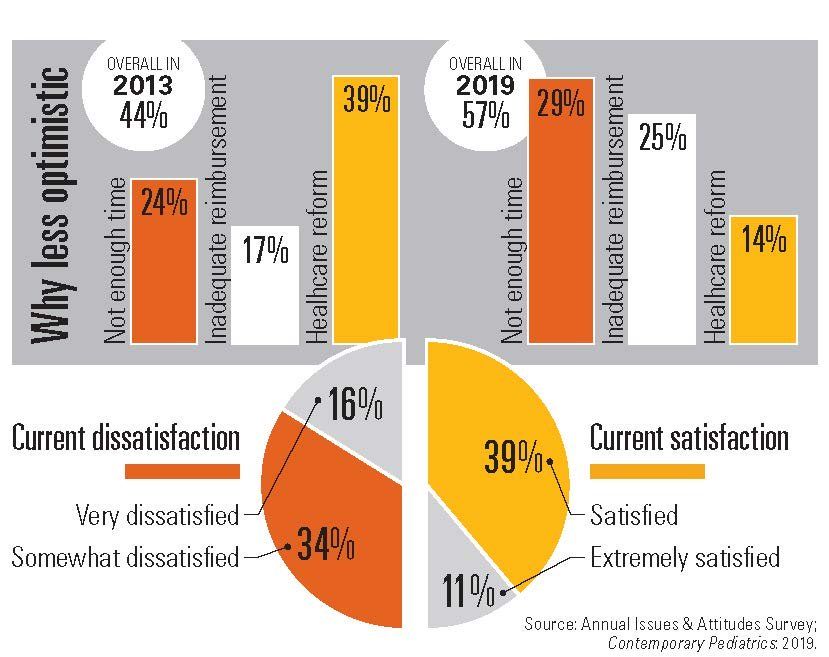
Top 2 challenges in 2019
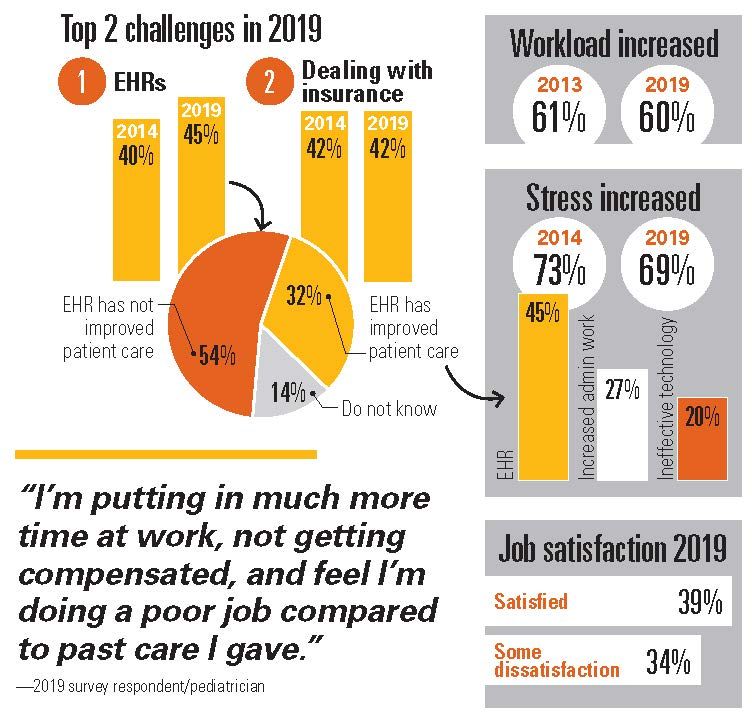
Picking specialty over again
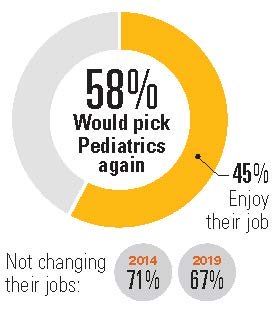
Top 5 challenges facing 2020
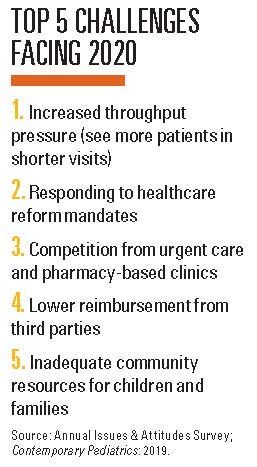
When Contemporary Pediatrics first surveyed our pediatrician readership in 2013 about being a practitioner in the day and what you thought about various issues facing the practice of Pediatrics at the time, we were surprised by what affected your professional and personal satisfaction with the job. Now, with the results of our latest Annual Issues & Attitudes Survey in hand, we can say that certain aspects of pediatric practice haven’t changed much in 7 years-but this time there are also some new problems that, like in the past, haunt you by day and keep you up at night.
What are these issues? How are you dealing with them and the changes occurring in pediatric practice? How do you handle the stress that comes with your job? Above all, are you happy with what you do?
We posed these questions and more to a population of 14,442 US-based pediatricians in an electronic survey during September/October 2019. Here are some highlights of what they said in 2019-versus their take in 2013.
About your job
In 2013, 44% of survey respondents were less optimistic about their ability to provide adequate care for patients, with healthcare reform (39%), insufficient time with patients (24%), and problematic reimbursement (17%) as the top 3 reasons for their pessimism. In 2019, that percentage jumped to 57% feeling less optimistic-for these same 3 reasons, with insufficient time with patients (29%) taking the number 1 spot followed by inadequate reimbursement (25%) and healthcare reform (14%).
As for job satisfaction, 50% of 2019 respondents expressed satisfaction/extreme satisfaction with their current situation whereas just 16% said they were very dissatisfied.
Challenges you face
In 2013, 39% of respondents noted the top challenge to effective practice was healthcare reform mandates, with 21% stating that Maintenance of Certification requirements negatively affected their practices. In 2019, 45% of respondents cited electronic health records (EHRs) as the biggest detriment to effective practice, followed closely by 42% who cited dealing with insurance reimbursement.
Nearly 60% of 2019 survey respondents reported their workload increased this past year, and 69% said their stress level also increased. Why? They cited increased administrative workloads (27%), burdensome technology (20%) and higher patient volume (11%). Here’s a bright spot: Only 45% of 2019 respondents said they experienced stress from their EHRs compared with 82% in 2013.
The biggest challenge this year’s survey respondents anticipate for 2020 is increased throughput pressure-seeing more patients for briefer periods of time as mandated by insurance companies for reimbursement. Respondents to the 2013 survey also had ranked the insurance push to see more patients as their top challenge going forward. After 7 years, the fight for face time with patients wages on.
Good news
There is a silver lining to this doom and gloom. In spite of it all, 58% of this year’s survey respondents said they’d pick Pediatrics all over again if given the choice of medical specialty, far outpacing runner-up Dermatology as their next-place specialty of choice. Spoiler alert: Your love of children is showing!
